
Audio
Dr. Rodger Stroup, retired Director of the South Carolina Department of Archives and History, is taking a deep dive into the history of the South Carolina State Fair, doing research for an upcoming...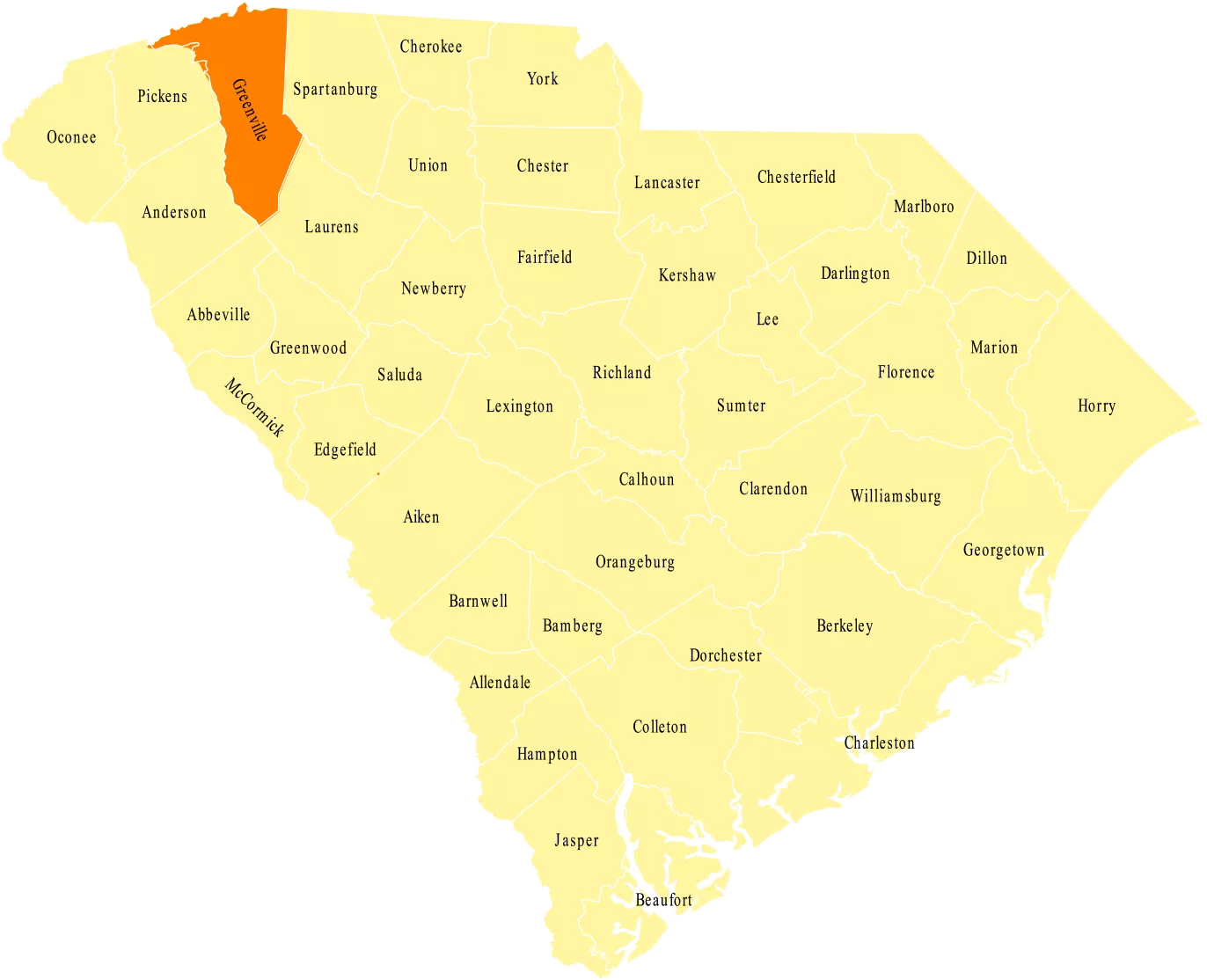
Greenville County, South Carolina’s most populous county, lies in the Upstate. Two popular opinions exist on the origin of the name of Greenville County and its county seat: Revolutionary War general Nathanael Greene or area local Isaac Green.
Cherokee Indians lived in the area first, but they eventually gave up control of the land to South Carolina in a 1777 treaty. After the signing of this treaty, a fair number of Scotch-Irish and English settlers came to the region. Soon after, in 1786, Greenville District was founded. However, this district existed within the Washington District from 1791 to 1800.
Although historically a vacation area for coastal South Carolina planters, the county’s rivers powered the majority of the county’s early economy. The river gave rise to iron works, cotton mills, and Greenville’s textile industry. From the Reconstruction Era until the late 20th century, the textile industry defined Greenville County’s economy, at one point so much so that the county earned the title of “Textile Capital of the World.”
Modern Greenville County’s economy has transitioned away from textiles. Over the last few decades the county has been the answer for many corporations wondering where to relocate. Greenville County’s economy now centers around technology, manufacturing, engineering, and business.
History of Greenville County. Accessed June 03, 2016.
http://www.greenvillecounty.org/
South Carolina Counties by Population. Accessed June 08, 2016.
ttp://www.southcarolina-demographics.com/counties_by_population

Audio
Dr. Rodger Stroup, retired Director of the South Carolina Department of Archives and History, is taking a deep dive into the history of the South Carolina State Fair, doing research for an upcoming...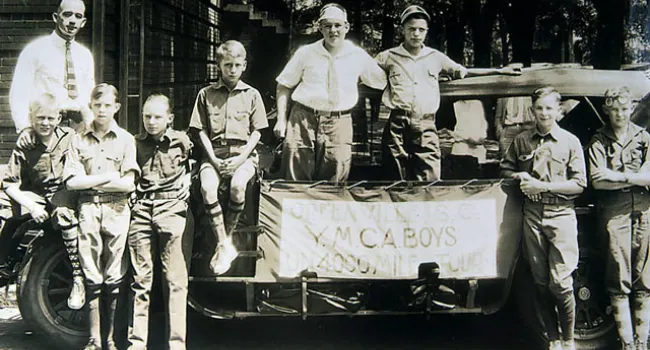
Photo
These boys from the Greenville YMCA entered a float in a 1924 parade. Courtesy of the Greenville County Historical Society.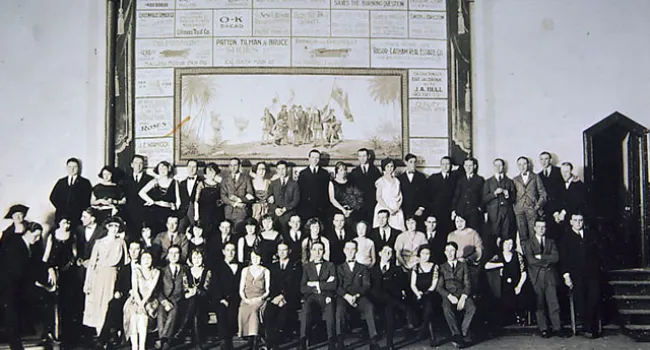
Photo
The members and guests pose for a photograph at this Knights of Columbus dance held in Columbus Hall of St. Mary's Catholic Church in Greenville in 1923. Courtesy of the Greenville County Historical...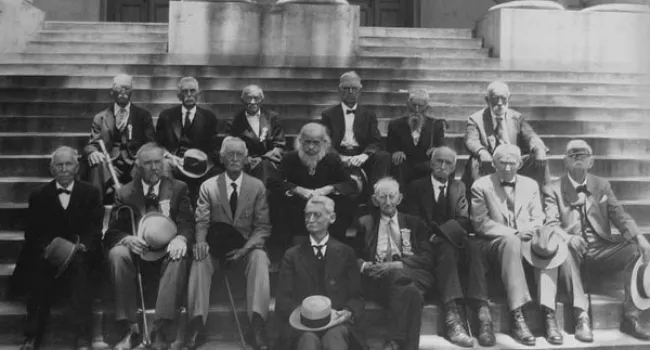
Photo
This group of Confederate Army veterans met often for reunions in Greenville in the early 1900s. Courtesy of the Greenville County Historical Society.
Photo
A traditional skill of the mountain and Piedmont areas is the crafting of baskets out of carefully split white oak. Here, Franklin Deloach shows the first stage in the making of a white oak basket...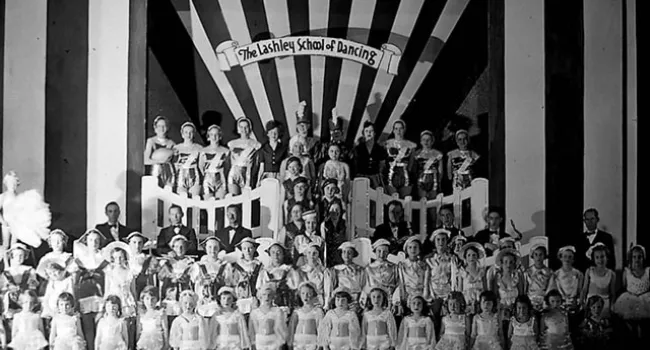
Photo
These young ladies are all students at the Lashley School of Dancing in Greenville in 1934. Photo by Dowling. Courtesy of the Greenville County Historical Society.
Photo
Classical or serious music has a long history in South Carolina. The St. Cecilia Society (still in existence today) was founded in Charleston in 1762 to bring the best concert music available to that...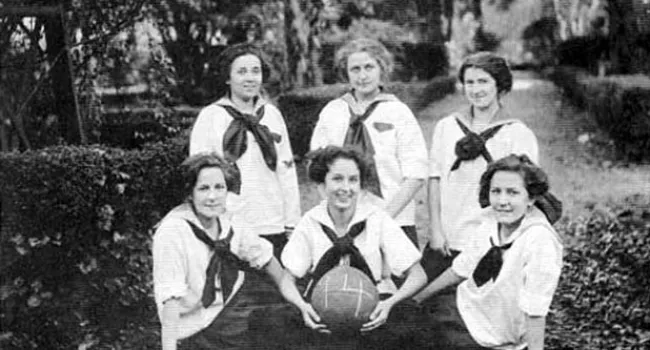
Photo
The Chicora College Basketball team in 1914. Courtesy of the South Caroliniana Library.
Photo
The Piedmont Manufacturing baseball team, 1889. Textile mill villages provided opportunities for recreation as well as for work, and most mill communities had their own baseball teams. Mills recruited...
Photo
Manly Field, Furman, 1929--the first football stadium in the South Atlantic to be lighted for games at night. A newspaper account of the first night game played there reports that the lights were on...